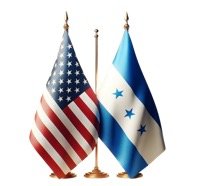Study a Master’s Degree in the United States: Requirements, Information and Costs

Pursuing graduate studies in the United States represents a significant investment in your academic, professional and professional future.
Many world leaders in politics, economics and culture have completed their graduate studies in this country. In this article, we will explore the requirements and process for applying to master’s degree programs at U.S. universities, offering you a comprehensive guide to navigating this important step in your career.
The United States is home to some of the best universities in the world, with high quality teaching by highly qualified professors.
These institutions excel in fields such as education, research and new technologies.
Graduate Programs Offered
Graduate programs in the USA cover all areas of knowledge and are aimed at university graduates. Some of the most outstanding areas include:
- Business: MBA, Marketing, Finance, Human Resources, etc.
- Engineering and Applied Sciences: Computer Science, Biomedical Engineering, etc.
- Science: Medicine, Biology, Physics, etc.
- Social Sciences: sociology, politics, public administration, etc.
- Arts: Film and TV, Music, Fashion Design, etc.
- Humanities: Philosophy, History, Literature, etc.
Admission Requirements
For Honduran students interested in pursuing graduate studies in the United States, it is crucial to understand and prepare to meet specific admission requirements. These requirements vary among universities, but there are certain common criteria to consider:
Undergraduate Degree
- Homologation of Degree: If you obtained your degree in Honduras, you will need an equivalency or homologation for it to be recognized in the US. This involves verifying that your college degree meets U.S. educational standards.
Academic Performance
- Transcript of Records: You must submit an official transcript of your college transcripts. This includes a certified English translation if the original documents are in Spanish.
- GPA (Grade Point Average): Many colleges require a minimum GPA for admission. In general, a GPA of 3.0 (on a 4.0 scale) is commonly accepted, although more competitive programs may require a higher GPA.
3. English Proficiency
- Language Exams: You must demonstrate proficiency in English through exams such as TOEFL or IELTS. For Honduran students, a minimum TOEFL score of 80 is common, although some programs may require higher scores.
4. Graduate Admission Exams
- GMAT or GRE: Depending on the area of study, GMAT scores (for business and management) or GRE scores (for most other graduate programs) may be required.
- Preparation for the Exams: It is advisable to dedicate sufficient time to prepare for these exams, as they are crucial for the admission process.
5. Additional Documents
- Personal Statement or Essay: You should write a personal statement or essay explaining your reasons for studying your chosen program, your academic and career goals, and why you are choosing the specific university.
- Letters of Recommendation: Two or three letters of recommendation are generally required. These should come from professors, employers or professionals who can attest to your academic and professional ability.
6. Application Process
- Online Application: Most universities have an online application process where you will need to complete a form and attach all required documents.
- Application Fees: Prepare to pay application fees, which vary by institution.
Financial Considerations
- Proof of Funds: You may be required to demonstrate that you have sufficient funds to cover your tuition and living expenses.
- Scholarships and Financial Aid: Research available scholarships and financial aid programs for international students.
8. Visa Aspects
- Student Visa (F-1 or J-1): Once admitted, you will need to obtain a student visa. The universities will provide you with the I-20 or DS-2019 form needed to apply for the visa.
Admission Process
The admission process to a master’s degree program in the United States may include:
- Academic and Linguistic Profile Evaluation: Determination of your personal objectives and preliminary evaluation of your possibilities.
- Preparation for Entrance Exams: such as TOEFL, GMAT or GRE.
- Program Selection: Based on your objectives and academic profile.
- Application for Admission: Preparation and follow-up of your application.
- Enrollment and Payment Management: Once the admission letter is received.
- Obtaining Form I-20 and Visa: Advice on how to obtain a visa.
Costs and Financing
The costs of studying in the U.S. include tuition, room and board, and can vary significantly among universities. In addition, you will need to consider additional expenses such as medical insurance, books, transportation and personal expenses.
Student Life on Campus
Campus life at an American university is an enriching and multifaceted experience, especially for international students.
Here we explore the different facets of student life and the financing options available to Honduran students.
Campus Experience
- Housing: Most international students choose to live in on-campus residences, which facilitates immersion in university life and access to academic resources.
- Multicultural Environment: Universities in the U.S. tend to have a diverse student population, which allows students to interact with and learn from people from different cultures.
- Activities and Clubs: College campuses offer a variety of extracurricular activities, student clubs and organizations that encompass interests such as sports, art, music, and more.
- Student Services: Colleges provide numerous support services, such as academic counseling, mental and physical health services, and career counseling.
- Networking Opportunities: Participating in events, seminars and workshops is an excellent way to build a network of professional contacts.
Financing and Grants
- Scholarships and Grants: Many universities offer scholarships based on merit or financial need for international students. These may cover part or all of the tuition.
- Graduate Assistantships: Some graduate programs offer teaching or research assistantships that may provide a tuition waiver and stipend.
- On-Campus Employment: F-1 visa students may work up to 20 hours per week on campus. These jobs are a source of income and work experience.
- Student Loans: Some financial institutions offer loans to international students, although they often require a U.S. guarantor.
- External Scholarships: There are organizations and governments that offer scholarships to international students. It is important to investigate the options available in Honduras and internationally.
Financing Requirements
- Demonstration of Financial Need: For need-based scholarships, financial need must be demonstrated through official documents.
- Academic Excellence: Merit-based scholarships require an outstanding academic record.
- Applications and Essays: Many scholarships and financial aid awards require separate applications, including essays and letters of recommendation.
- Meeting Deadlines: Meeting application deadlines is crucial to ensure consideration for funding.
Campus life in the U.S. offers a complete experience, from academic opportunities to personal and professional development.
Local Support and Opportunities
Universities in the United States provide a wide range of support services and opportunities for international students, including those from Honduras.
These services are designed to facilitate adaptation to a new educational and cultural environment and to maximize students’ academic and professional success.
International Student Support Services
- International Student Office: Almost all universities have an office dedicated to supporting international students. This office offers guidance on visas, cultural adaptation, and legal matters related to studying and working in the U.S.
- Orientation Programs: Universities often offer specific orientation programs for international students prior to the start of the semester. These programs address topics such as campus life, academic resources, and health and wellness.
- Academic Advising: Academic advisors help international students choose courses, understand graduation requirements and navigate the U.S. educational system.
- Language Support: Many universities offer ESL classes or academic writing workshops to help students hone their language skills.
- Health and Wellness: On-campus health services are available to address medical, psychological and general wellness needs. They also often offer wellness programs and recreational activities.
Career Development Opportunities
- Career Centers: These centers offer services such as career counseling, resume and cover letter writing workshops, interview training and job fairs.
- Alumni Networks: Universities provide access to alumni networks, which can be valuable resources for networking and professional development.
- Internship and Co-op Opportunities: Many academic programs incorporate internship or co-op opportunities that allow students to gain work experience in their field of study.
- Networking Events and Job Fairs: Events organized by the university where students can meet employers, learn about different industries and explore employment opportunities.
- Online Resources: Access to employment databases, job search resources and online professional development tools.
Important Considerations
- Culture and Adaptation: Actively participating in campus events and activities can facilitate adaptation to U.S. culture and expand your social and professional network.
- Career Planning: It is important to start planning your career from the beginning of your studies, taking advantage of the resources offered by the university.
Universities in the United States provide a comprehensive support environment for international students, ranging from initial adjustment to career preparation.
For Honduran students, taking advantage of these resources and opportunities can be key to a successful and enriching U.S. experience.






